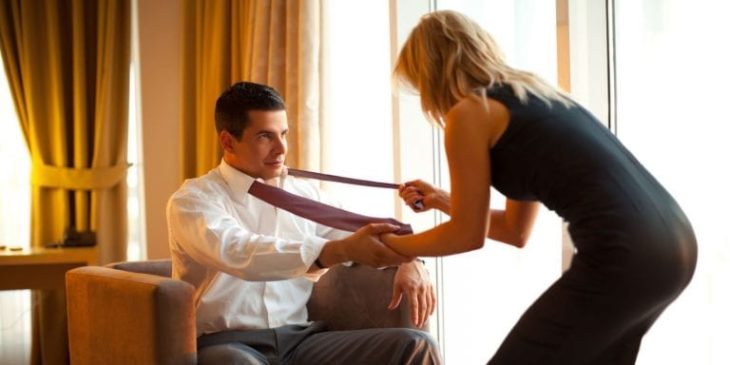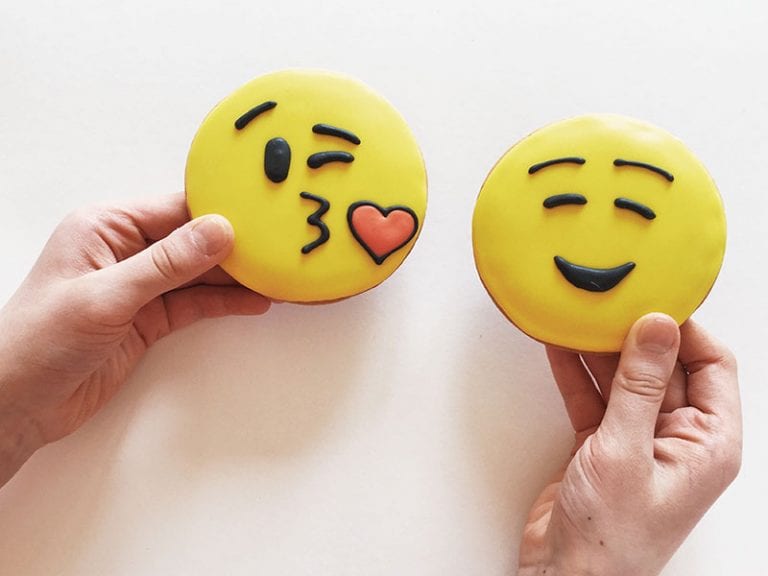Growing up, I saw singledom as the “default” way to live. My first impression of my (divorced) parents were as singles, and they were carrying on just fine, so I figured that was just the way things were. I managed to remain pretty oblivious to the society-wide pressure to marry longer than most kids, and while a partner sounded nice, I never thought I needed one growing up or planned my future with a someday husband in mind. I reasoned that I could never plan for something so volatile as love, and always thought of myself as something of a free agent in the world, unlike many of my peers, who went through high school and college counting the days until they found a nice young guy with top-dollar earning potential so that their “real life” could start. Other people, potential partners included, seemed like such wildcards — who knew whether they’d show up for me or when? I expected to only be able to count on myself. On paper, this sounds pretty bitter, but it wasn’t that way at all — it was just how I saw life, and rarely gave it a second thought. If I had thought about it more at the time, I’d have seen it as empowering, if anything. As I got older, though, my mind felt lagged and overtaxed as it constantly ran over and prepared for every task and potential problem each day would hold. I had to check and double check my own logic, because I made nobody else privy to my day-to-day stresses, and as a result, nobody else was going to make sure I stayed on top of things. I started to feel the mental and physical toll of counting on nobody but myself.

Source: Times of India
I also fell in love. My boyfriend showed me how rewarding it can be to be vulnerable with someone and allow them to help you out now and then. I’m still working on this, because I have a tendency to shutter inward and not admit it to myself when I want to emotionally lean on him. I mean, I’m a strong independent woman, right? I don’t need to rely on a man, right? But just because I can do everything for myself, does it mean that I have to? If I’m being honest, even choosing to be in a committed relationship at such a young age and moving closer to my boyfriend used to make me feel guilty as a modern woman (facepalm, I know). My feminist foremothers worked so, so hard so that I would have the choice to not up and get into a relationship right after making it all the way to New York City by myself, and yet there I was, in love. Still, I pushed on in mostly relying only on myself, even though there was a perfectly willing partner and close friends happy to help.
My dad’s sudden death this summer was the last straw for me. I found myself wading through mountains of paperwork and horrible phone calls with insurance companies and funeral homes. I was lucky to have help from family members, but as his next of kin, all final decisions legally fell upon me. I never felt so alone in my life. How good would it feel, I thought, to just lean back for a few minutes and for someone to tell me they had it covered? To not have to cover my own ass for just a second? It was then that I realized that sometimes I really just want to depend on a man. I want my partner to step in and say, “I’ve got this covered,” in some sexy faux-masculine tone that somehow makes the whole world feel more solid. There’s no easy way for me to admit that (in fact, I’m cringing even as I write it) because I have a lot of pride tied up into my independence and because, obviously, I believe in gender equality. Maybe wanting to depend on a man makes me a bad feminist. Maybe that doesn’t even matter at this point.

Source: FashionBeans
An issue I’ve come up against repeatedly in therapy is wanting people to be solid for me, and wanting them to “keep their side of the street clean” in relationships, both romantic and otherwise (and of course, I want to do the same for them). The problem is that I often don’t give them the chance to come through for me in the first place, because when I go to express my emotional needs, I either can’t make the words come out or immediately become apologetic (I’m working on it!). Instead, I continue to carry my burdens on my own, running myself into the ground with the effort of keeping myself afloat. I want people to come through for me when I’m desperate or devastated or just need to hear that things are going to turn out okay. I want to know that if I take the leap of asking for emotional support, they’ll reach out and steady me. There have been times in the past when I’ve asked for help and instead of arms reaching out to catch me I’d realized I’d just leapt into a black hole with no solid ground beneath it. I was just falling into space, far more hurt and vulnerable than if I’d just kept it to myself and never asked for help. This happened from time to time with my father (that’s a lengthy post for another day), and now that he’s no longer alive, the feeling is constant. People had told me before that losing a parent is like losing your foundation, but I’d never imagined how acutely that feeling would dictate my everyday life. I feel like I’m floating in space all the time, trying to grab onto anything solid as I free fall. That instability made me realize that family is a much bigger priority to me than I ever knew. Without the solidity that comes from being surrounded by dependable relatives, or wonderful friends, or — yes — a husband who loves you, what is there at the end of the day?

Source: Cougar dating
My dad was always heavily present in my life and helped raise me, but in deeper ways that I couldn’t see as a little girl, my mom was on her own. Parenting me, in the more intangible ways, was not a 50/50 setup. She was a single parent, and often my sole parent, and somehow was always there for me despite working full-time. She was a one-woman show, not in order to live out the dream of some Atlantic thinkpiece about “having it all,” but because she had no other choice. She never even made it look hard. As I get older, especially since my dad’s death, I’m seeing the cracks in the “single mom” facade. As much as my mom is a rock for me (she really is amazing), she is one person. I always thought women could do whatever they wanted all by themselves, but she can’t do and be everything — not because of her gender, but because, once again, she is only one person.
Men can’t do everything or be superhuman either, the only difference is that the world is far less likely to question them when they try to. My mom has since remarried, and I can’t help but feel that her life got easier in so many ways when she did — especially when it came to having more time and resources to parent. But if my mom really would’ve been better off with more help, what does this reality mean for my views on independence or, if I’m being real, my entire value system? None of the women in my family have ever put finding a partner above their other dreams. My mother and her sister didn’t marry until their 30s. Even in the 1940s, my grandmother waited a long time to get married, and she tells me regularly to “do everything I want to do in my life” before I commit to someone. On the surface she seems like a very old-school woman, and yet she’s called my mom in tears, worried about me — not that I’ll get chewed up and spit out by city life, but that I’ll get married too young!

Source: Pinterest
Maybe what I’m really wanting isn’t support from a boyfriend, but to get that feeling of parental support back that I lost this summer — which obviously no partner can ever replace (or maybe I should just rename this essay ”Hi, I have abandonment issues!”). I sometimes feel like I subconsciously took on a lot more responsibility for myself growing up than I realized. Maybe I was filling in part of the “parent” role that was missing, and trying to be hyper-diligent for myself put my brain into overdrive — kind of like when your iPhone’s apps refresh in the background and you hardly even notice it happening, yet it drains all your battery life cause the phone is working double time (goofy comparison, I know, but you get the picture). Maybe that’s why I’m suddenly so keen on sharing some of my burdens with others, and why I’m so burned out on simply existing solely for myself. Maybe my hang-up with counting on my boyfriend is not so much about my need to depend on a partner, but sexism’s invasion into my everyday life. Of course I want to depend on others, all humans do, but when that someone is a man, people give more side-eye — though to be honest, the only major side eye I’m getting is from myself. What I long for above all is a deeper sense of stability. Emotional security can truly only come from myself, and I know that, but if depending on a person I love for a little extra help makes me feel more solid, then so be it. I’m still not really sure what I believe about independence these days, but I realize that life is hard, and sharing its struggles with someone else is hardly something to be ashamed of. I’m saddened by all the times as a teenager that I questioned other women for quitting their jobs after getting married, or for allowing their husbands to take on some of their chores for them, or for prioritizing a search for a committed life partner (which is now also a big priority to me). None of these things are mutually exclusive with feminism, or (more importantly) with living a fulfilled life. I’d love to hear your thoughts on this too — have you ever struggled with leaning on dudes?

Source: thedistrictrecovery.com
Original by
